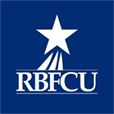Which Credit Card is Better for Me? Cash-Back or Low-Interest?
The amount of credit card options that are available today is expansive. Even if you’re focused on getting a credit card with rewards, the choices are endless.
Often, the go-to alternative, if you’re not considering a rewards card, is the low-interest credit card.
The benefits from a rewards card look obvious. Who wouldn’t want travel paid for because you use an airline or hotel-branded credit card? And why not stick to the cash-back credit card, which returns “free money” according to some credit card analysts.
But does that make them automatically better than credit cards with low interest rates? There are some important considerations before you decide, plus RBFCU offers the calculator below that will help you choose between a cash-back credit card and a low-rate credit card.
Do you intend to carry a balance each month? The math on rewards-based credit cards works well for people who pay their bill in full each month. But if you’re making minimum payments or you’re otherwise leaving a balance on your card each month, you should take extra consideration and see that your interest rate is low enough that it won’t eat into the rewards you’re earning. Interest rates for rewards cards often are two or more percentage points more than the rates for low-interest cards.
Are you planning a big purchase? You may really need furniture for your new house, but the closing costs and down payment have taken most of your available cash. Low-interest rate cards work well when you’re looking for big-ticket items and you don’t have time to save for the purchase. These cards certainly are more attractive than the credit cards offered by retail outlets, which have certain drawbacks such as high interest rates that you should know about.
Don’t forget annual fees. The annual charge to hold a rewards card can act just like interest rates. They can take a big bite out of the rewards you’re trying to accumulate. High annual fees also have a detrimental impact on a credit card that is advertising a low interest rate.
As you study the options for rewards or low interest available for credit cards, also look for no-annual-fee cards. A credit union like RBFCU can offer no annual fees for both types of cards.



